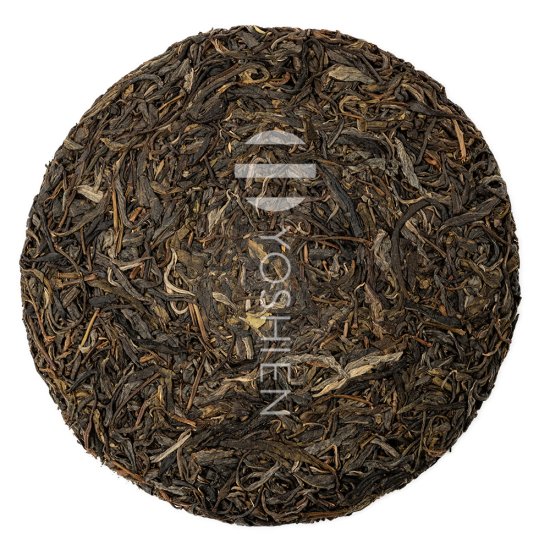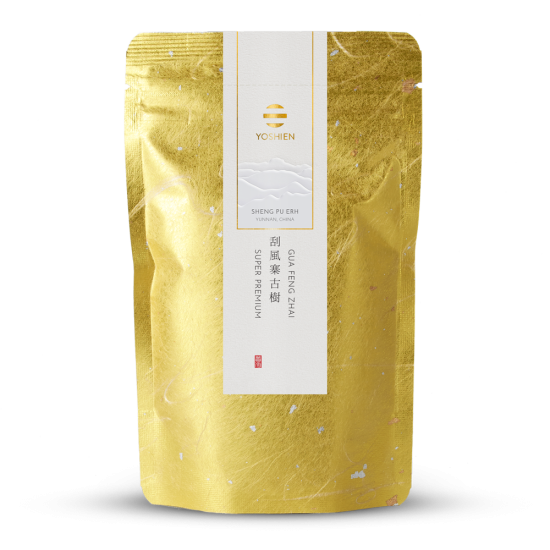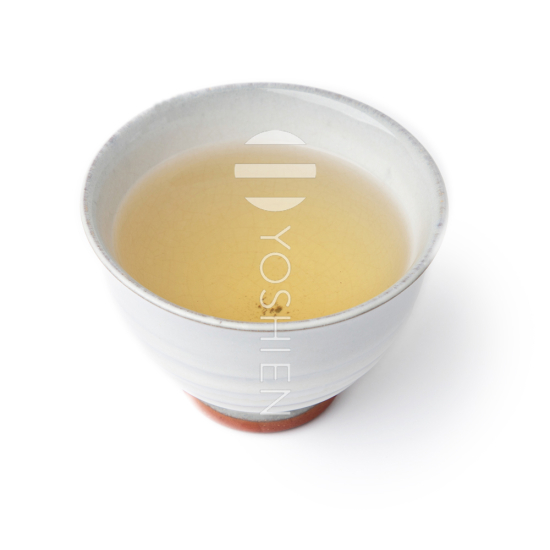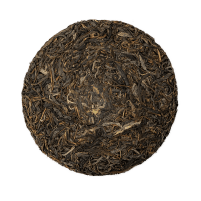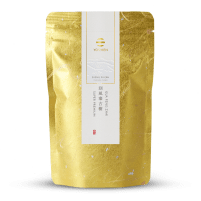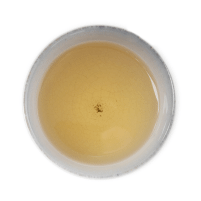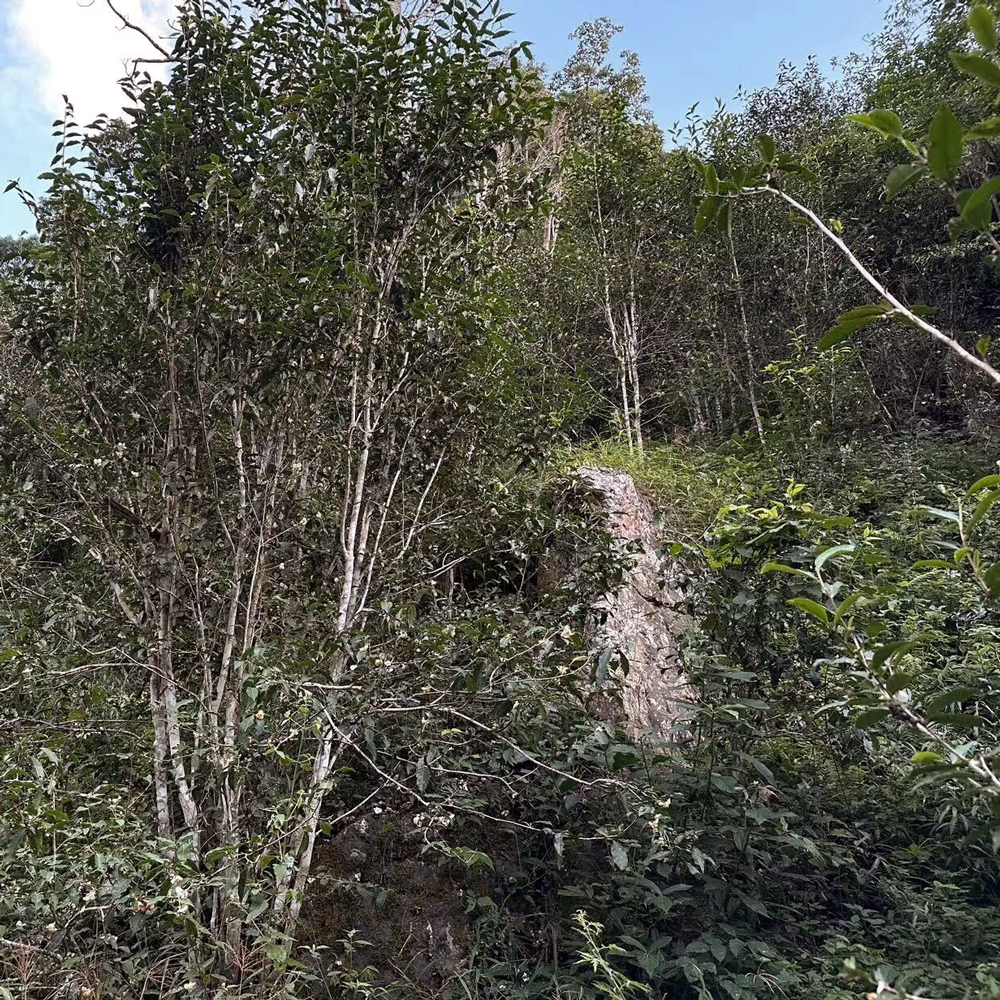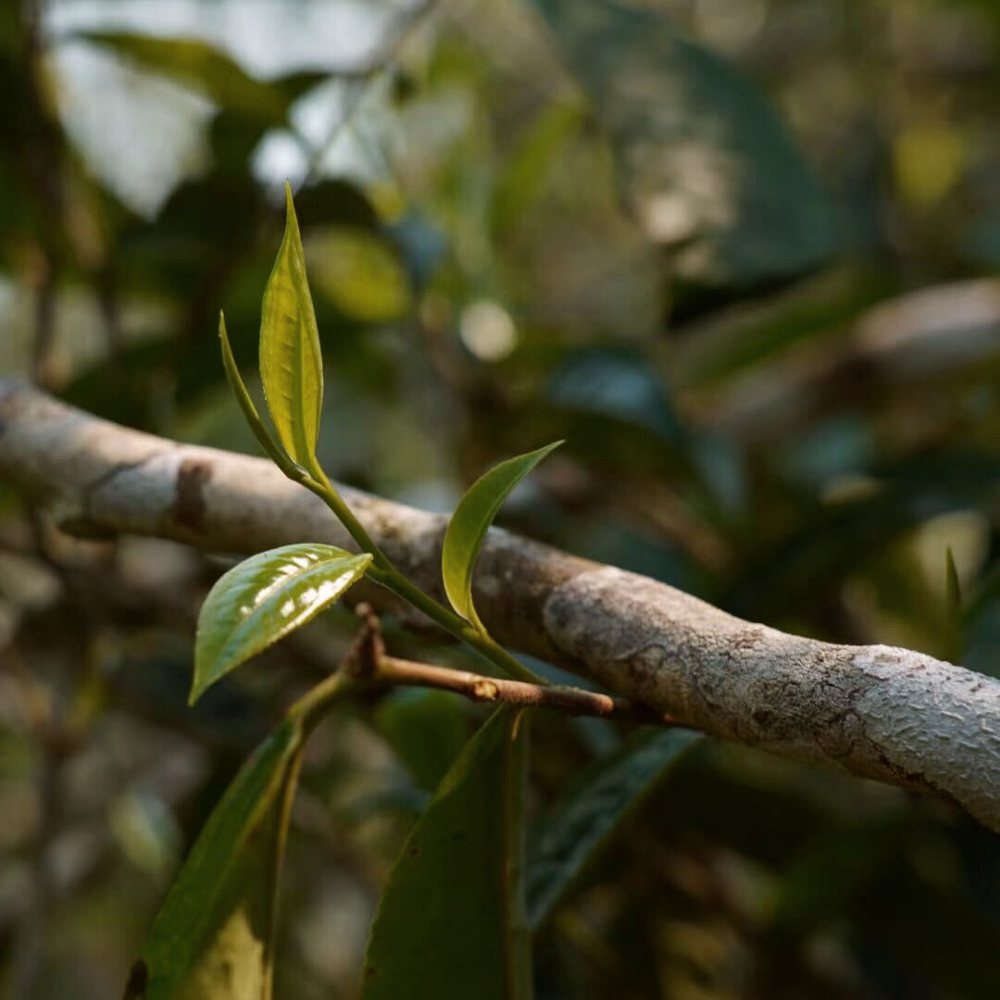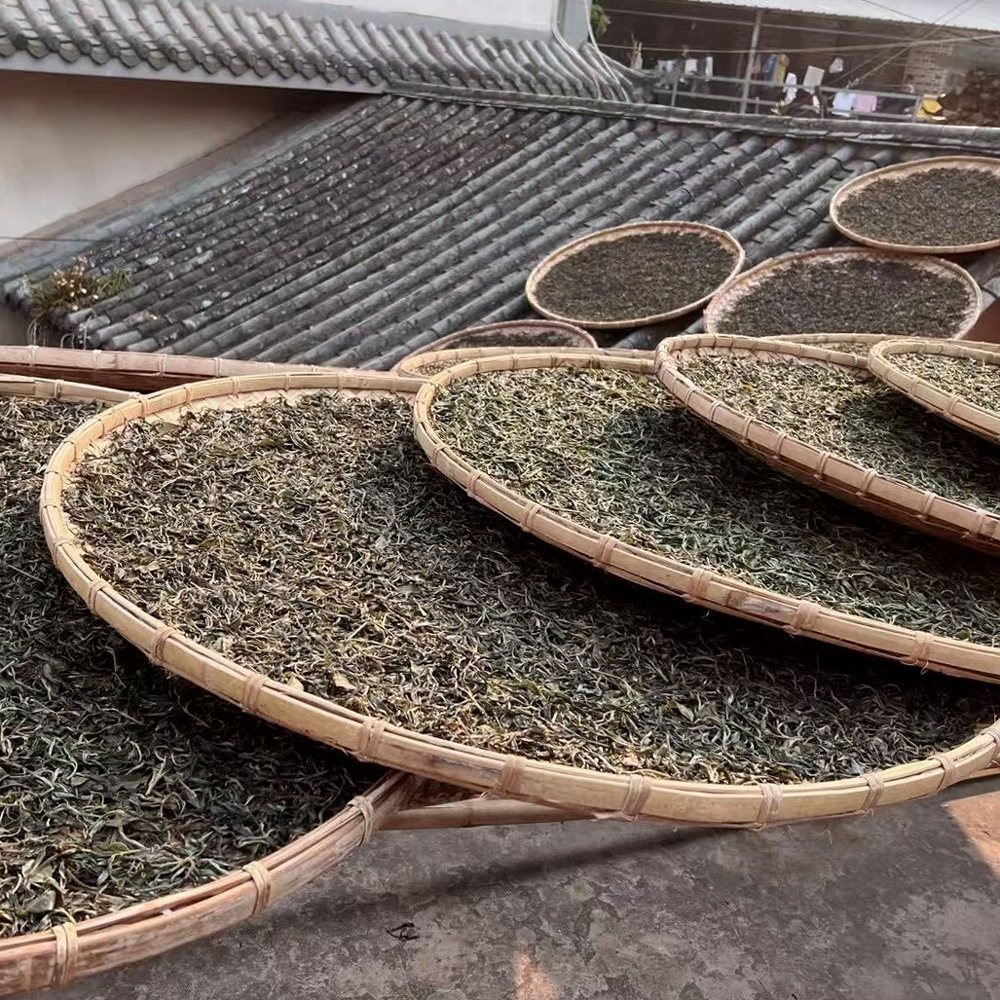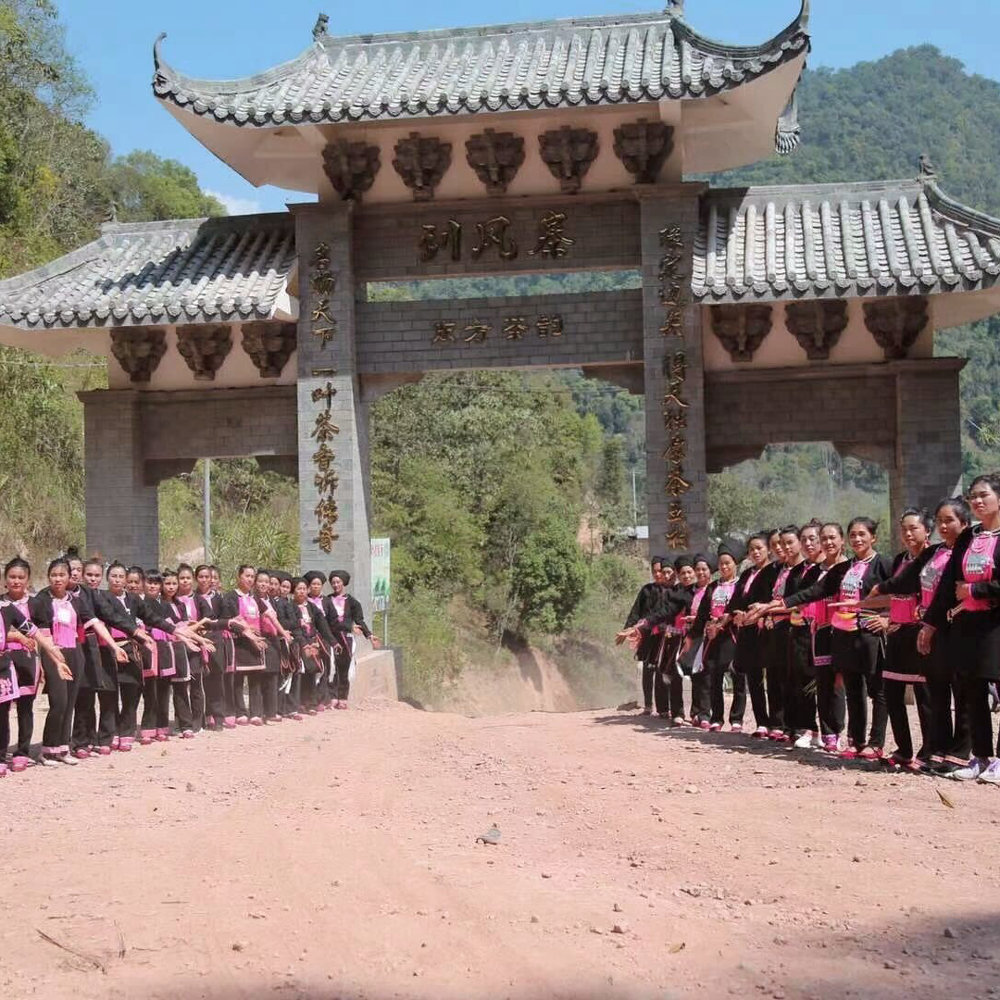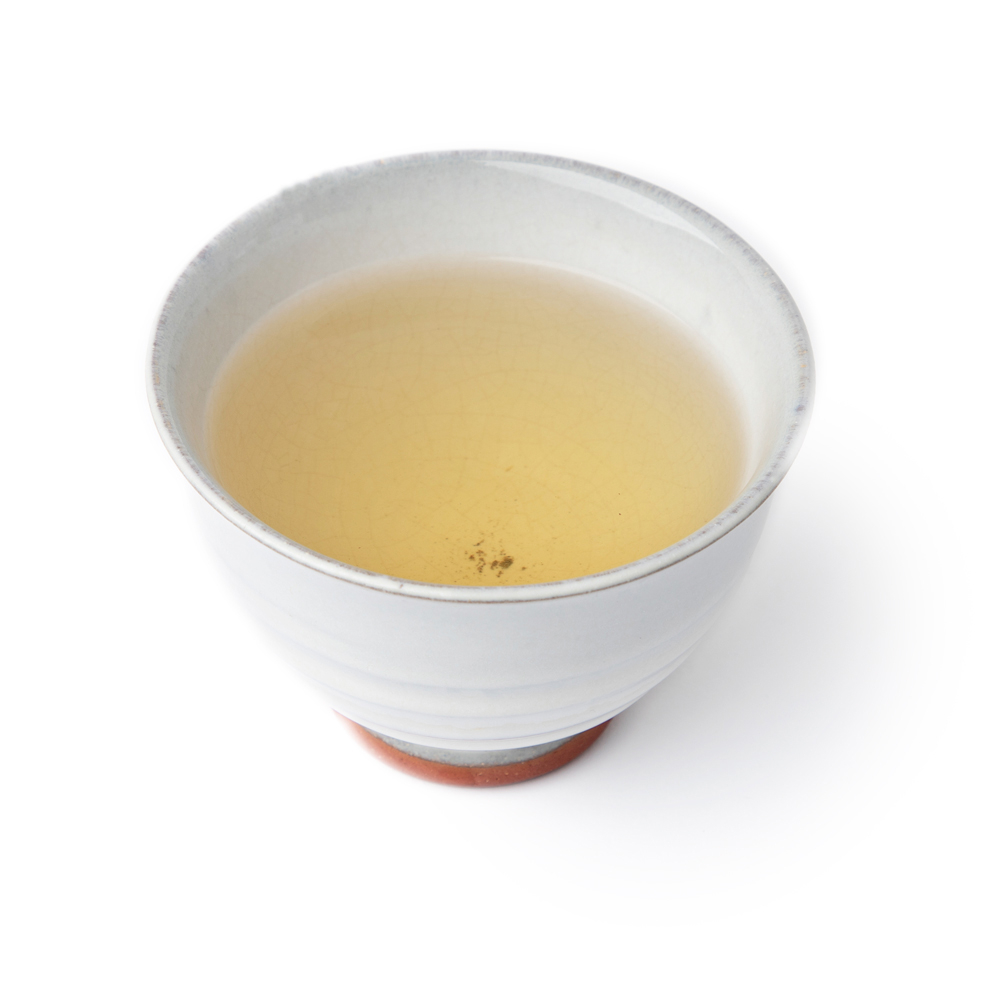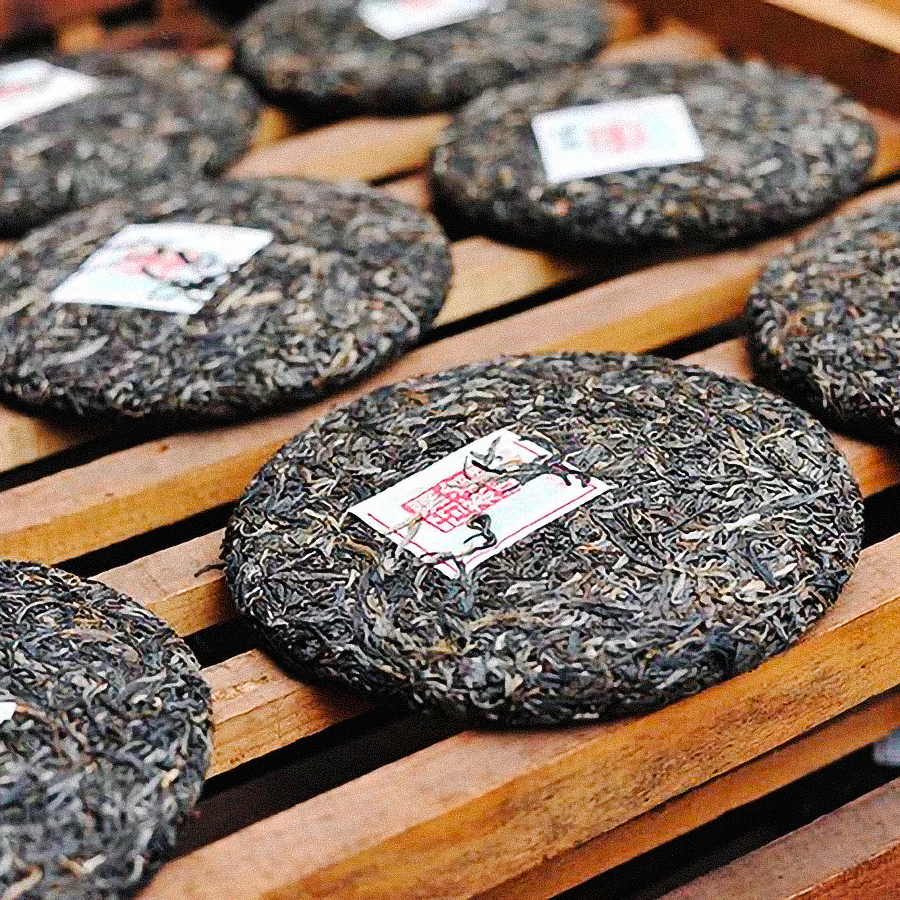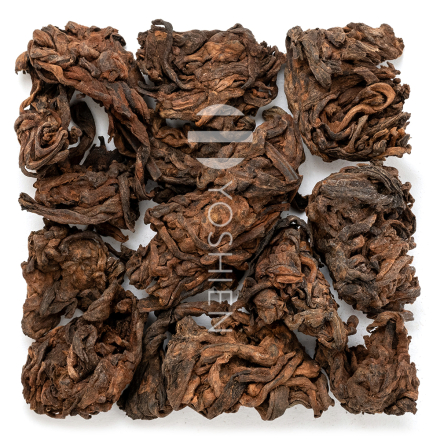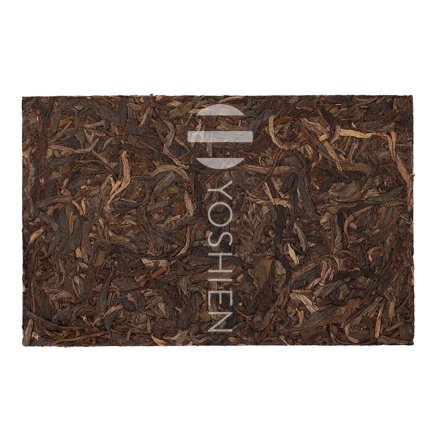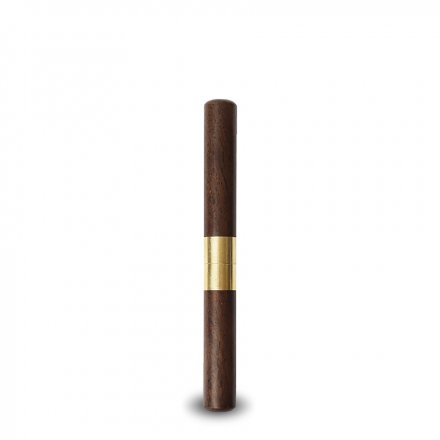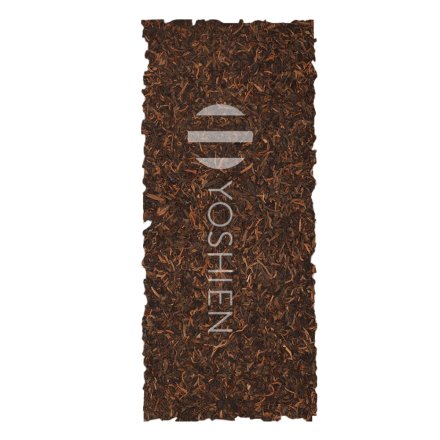Gushu 古树
The most highly valued Pu Erh teas are made from the leaves of wild Gushu, literally “old tree”, which are at least 100 years old. In the tea forests of Yunnan no two tea trees are alike: each has its own unique ecosystem of moss and microorganisms, ergo each tree produces its own unique tea. Furthermore, the older the tree, the deeper the roots extend into the soil, enabling them to absorb more complex nutrients that get transported to the buds and leaves, resulting in a tea with a richer, more developed character.
Processing
The harvest season begins in late March or early April and is always done by hand early in the morning until noon. For taller trees special ladders are used to reach the uppermost branches, and for this high quality tea, only the buds and first two leaves are plucked. These are then withered for a few hours, either indoors in troughs with electric fans or outdoors on cloths under the sun.
After enough moisture has been drawn out from the leaves, they are heated in a process known as fixing or “kill green” to stop them from oxidising. This is done in batches of around 1kg for 30 to 45 minutes in large woks over a traditional wood-fired stove. The leaves are constantly moved around to stop them from scorching.
This step is similar as for conventional Chinese green tea, however the heat is slightly lower in order not to kill off all the enzymes responsible for oxidation so that the tea can continue to ripen and evolve in taste: a special feature of Sheng Pu Erh and other post-fermented teas.
Once fixed, the leaves are rolled in a machine that mimics the artisanal technique of hand rolling tea, which breaks down the cellular structure of the leaves to release the aroma and flavour. After rolling, the leaves get very wet and thus undergo a second drying phase, typically outdoors.
Lastly, the leaves are briefly steamed to make them more pliable, then weighed, portioned and placed in cloths to be pressed into cakes. This is done the traditional way under heavy stone, and not with a machine, to preserve the integrity of the leaves.




